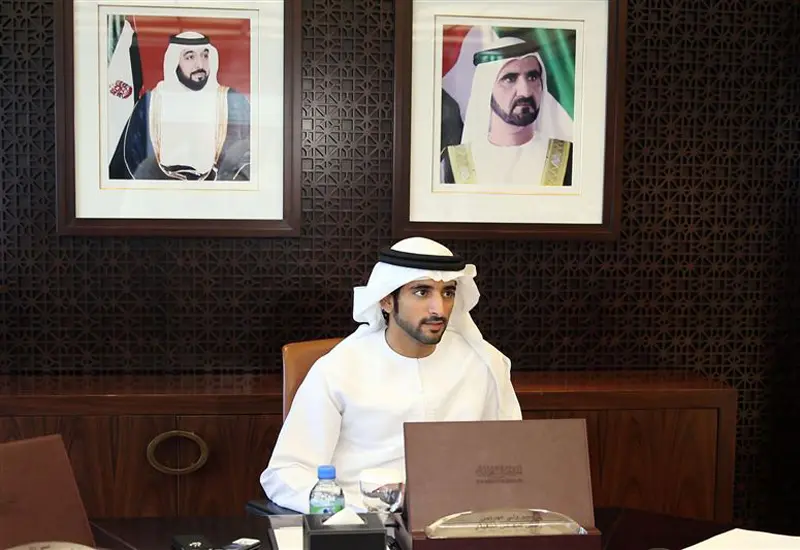Evaluation of the Dubai Land Department (DLD) Performance by Sheikh Hamdan
In today’s rapidly developing world, evaluating governmental departments is crucial for growth and improvement. Sheikh Hamdan’s recent assessment of the Dubai Land Department (DLD) reflects a commitment to transparency and excellence. In this article, we will explore key elements of that evaluation, showcasing the DLD’s successes and areas for enhancement.

Understanding the Role of the Dubai Land Department
The Dubai Land Department plays a pivotal role in regulating real estate transactions and ensuring land use efficiency. Understanding its functions helps us appreciate the significance of Sheikh Hamdan’s evaluations.
From overseeing property registrations to managing land disputes, the DLD serves as the backbone of Dubai’s real estate market. This comprehensive involvement is crucial, as it bolsters investor confidence and encourages growth. Anyone looking to invest in Dubai must grasp how this department operates to navigate the market effectively.
Moreover, the DLD is instrumental in implementing sustainable urban planning strategies that align with Dubai’s vision for the future. This dual focus on regulation and sustainable management reflects a progressive approach that supports not just immediate gains, but long-term viability. Thus, the effectiveness of the DLD directly influences the overall health of the real estate sector.
Evaluating Key Performance Indicators
Performance indicators are essential for measuring the DLD’s effectiveness in achieving its goals. We’ll delve into the specific KPIs highlighted by Sheikh Hamdan. These metrics provide concrete evidence of how well the department is functioning and where improvements are necessary.
One of the primary indicators is the speed of property transaction processing. Sheikh Hamdan emphasized that quicker processing times can significantly enhance investor satisfaction. Reducing bottlenecks not only benefits investors but also enhances the DLD’s reputation, attracting more business to the city.
Additionally, customer satisfaction ratings have become increasingly important. These ratings help highlight areas where the DLD excels, as well as those where it needs to focus its efforts for improvement. Continuous feedback loops allow for real-time adjustments, ultimately leading to more effective service delivery.
Achievements and Milestones of the DLD
Sheikh Hamdan’s evaluation celebrates several remarkable achievements of the DLD that contribute to Dubai’s reputation as a global real estate hub. Among these, the digitization of property transactions stands out as a monumental milestone. By moving online, the DLD has made it easier for both residents and investors to access vital services.
Another noteworthy achievement is the DLD’s commitment to transparency through its data-sharing initiatives. By providing access to essential market statistics, the department fosters a culture of accountability and trust. This proactive step not only informs stakeholders but also enhances the investment climate, making Dubai even more attractive.
Furthermore, the successful implementation of various smart technologies has streamlined operations. These advancements not only improve efficiency but are also aligned with Dubai’s broader strategy for innovation and sustainability. It’s clear that the DLD is not just keeping pace with change but often leading it, exemplifying best practices in urban management.
Challenges Faced by the Department
No organization is without challenges. This section outlines the areas where the DLD can improve, as noted by Sheikh Hamdan. The DLD has faced hurdles, particularly regarding outdated regulatory frameworks that can impede progress. Implementing modern solutions in a rapidly changing environment is no small feat, and this is an area where continuous reassessment is crucial.
Another challenge arises from rising public expectations. As Dubai grows and attracts a diverse population, maintaining high service standards becomes increasingly complex. Sheikh Hamdan pointed out that the DLD must closely engage with its customers to understand emerging needs and adjust services accordingly.
Lastly, the competition from global markets presents an ongoing challenge. In an era where digital platforms provide easy access to property markets worldwide, the DLD must continuously innovate to remain competitive. This requires not just technological upgrades but also strategic partnerships that can enhance its offerings.
Future Directions for the DLD
Based on Sheikh Hamdan’s insights, we will discuss the anticipated future developments and strategies that the DLD plans to implement. One promising direction involves leveraging artificial intelligence and machine learning to improve service delivery. By analyzing data patterns, the department can predict market trends and react more swiftly to changing demands.
Moreover, enhancing customer engagement through interactive platforms is on the agenda. By creating user-friendly interfaces, the DLD can facilitate smoother transactions and improve the overall customer experience. This not only benefits current clients but also attracts potential investors who seek transparency and ease of use.
Finally, a stronger focus on sustainability will accompany these technological advancements. Sheikh Hamdan envisions the DLD leading initiatives that promote environmentally friendly real estate practices. As global awareness of climate issues grows, aligning the department’s goals with sustainability trends will bolster Dubai’s position as a thought leader in responsible land management.

